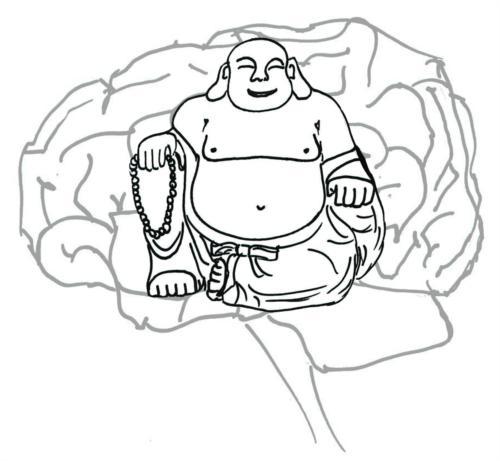
News
Summers Will Not Finish Semester of Teaching as Harvard Investigates Epstein Ties

News
Harvard College Students Report Favoring Divestment from Israel in HUA Survey

News
‘He Should Resign’: Harvard Undergrads Take Hard Line Against Summers Over Epstein Scandal

News
Harvard To Launch New Investigation Into Epstein’s Ties to Summers, Other University Affiliates

News
Harvard Students To Vote on Divestment From Israel in Inaugural HUA Election Survey
A Stroke of Genius

On December 10, 1996, Harvard neuroscientist Dr. Jill Bolte Taylor nearly died. As a result of a cerebral hemorrhage, the left lobe of her brain was wiped out, causing her mind to lose most of its analytical functions.
It was the greatest experience of her life.
Surprisingly, what would normally be considered a harrowing brush with death proved a transporting spiritual awakening. As a result of her stroke, Taylor found herself in a transcendental state, stripped of the burdens of normal consciousness. Freed from the need to worry or analyze, she attained something resembling the Buddhist and Hindu conception of Nirvana: a complete denial of self through the cessation of desire. After a long period of recovery, she now claims to be able to escape the demands of her left lobe at will. Living in a brightly colored house in Indiana, she serves as a prophet of sorts, spreading the good news through her recently published book, which advocates increased focus on the right brain.
The story represents a peculiar confluence of Eastern religion and Western science, as Taylor’s spiritual state was achieved not as a result of meditation or prayer, but through the literal destruction of a portion of her brain. Her journey is, in many ways, the ultimate display of materialism—even the ineffable condition of religious ecstasy can be created by neuro-chemical manipulation. The link between the physical and metaphysical serves as a powerful reminder that even the things about ourselves that we consider the most fundamental—our beliefs, our selves, and our basic conceptions of existence—are contingent facts, created by so much neurological circuitry. All it takes is a burst blood vessel in the cerebral cortex in order to completely alter our perception of reality.
In a sense, it seems fitting that Harvard was the site of enlightenment, serving as Bodhi Tree for this modern-day Buddha. Harvard is probably one of the most left-brained places in the world. Nirvana and self-cessation do not blend well with the hypercompetitive, ego-driven culture that is cultivated at this bastion of the protestant ethic and spirit of capitalism. Before her stroke, Taylor was very much a part of the Harvard ethos, a neuroscientist who, according to her colleagues, displayed none of the mysticism that would characterize her future. But the tiniest of biological accidents changed it all.
Harvard students, more than anyone else, could probably use the reminder that our minds and our selves are not quite as essential as we might like to imagine. Whether Taylor is a Buddha or just a debilitated stroke victim, during this week of honoring personal achievement, perhaps we should all consider, at least for a moment, the extent to which the forces that push us ever-onward with seemingly infinite force are no more immutable than so many neurons, waiting for a blood vessel to burst.
Daniel E. Herz-Roiphe ’10, a Crimson associate editorial chair, is a social studies concentrator in Adams House.
Want to keep up with breaking news? Subscribe to our email newsletter.
